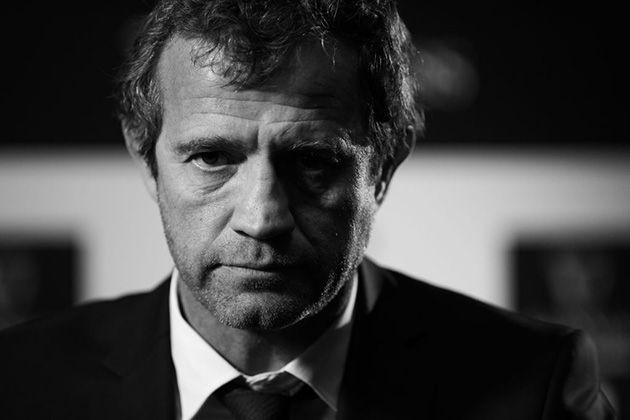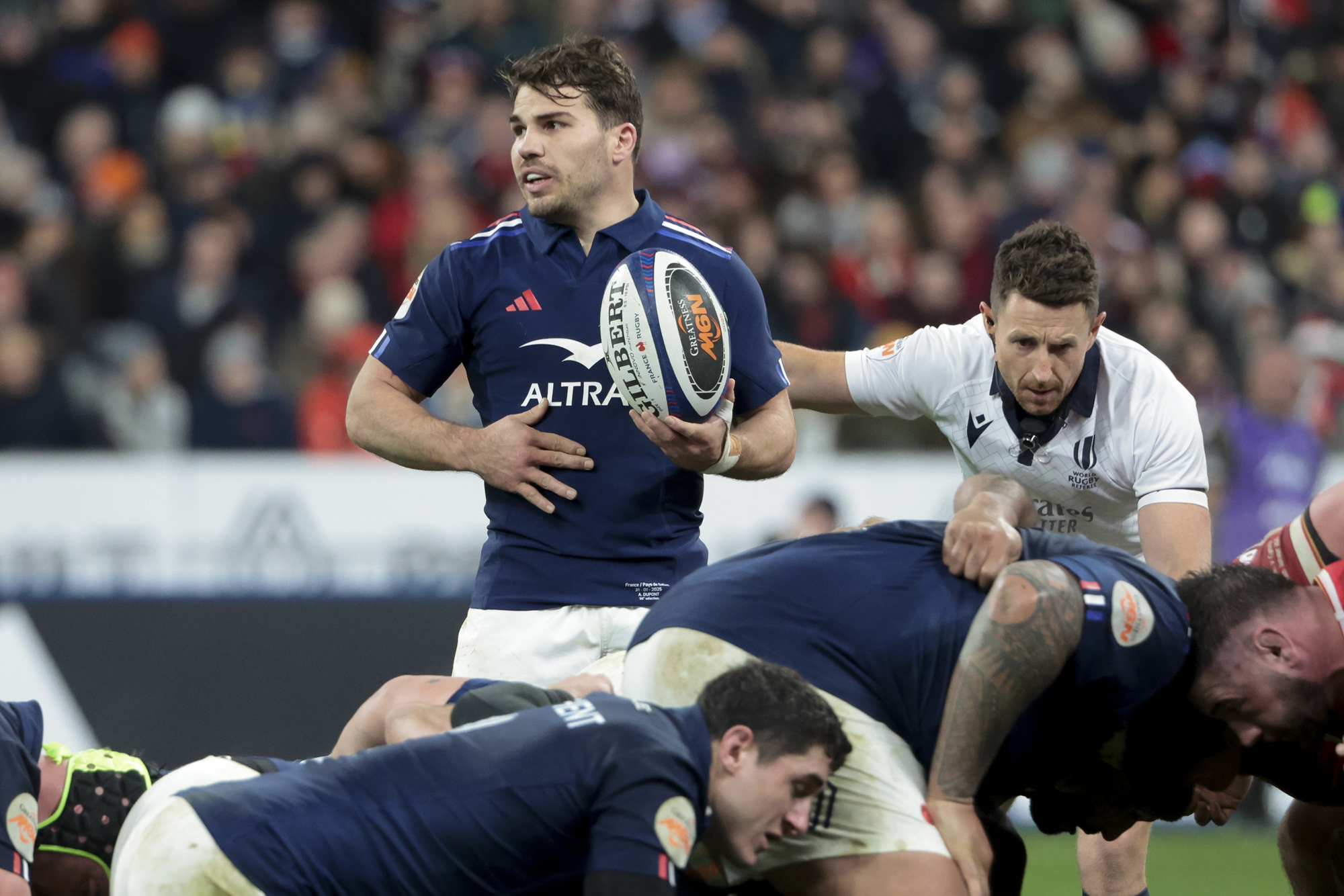Gavin Mortimer assess the strengths and weaknesses of the new France coach’s approach
Can enigmatic Fabien Galthie restore glory to France?
France don’t have Marmite but if they did they could call it Galthie. The new coach of France has that effect on people: you either love him or hate him.
Those in the former camp tend to be equals, erstwhile team-mates of talent, who describe a driven but likeable man. Fabien Galthie made his International debut in 1991 and Denis Charvet, a France centre from 1986-91, says: “He lives, eats and sleeps thinking about rugby. He has an attention to detail, and an unusual demand of himself and of others.”
Another ex-international colleague, Jean-Luc Sadourny, who was a team-mate of Galthie’s at Colomiers, recalls a young man “open and cheerful” who when he returns to his roots to see old friends “still has the rugby spirit and knows how to party”. Sadourny adds that Galthie has a sensitivity that he sometimes conceals beneath a brusque persona.
Max Guazzini, the president of Stade Francais when Galthie was both a player and coach at the Parisian club, agrees. “His carapace protects him because in fact he’s sensitive, with true values, and asks himself a lot of questions.” His enemies are often his underlings, players who have been coached by Galthie during a management career that began at Stade Francais in 2004 and has encompassed Montpellier, Toulon and a two-year stint with Argentina.
Many will only speak off the record. One former France international told me that Galthie is one of the best technicians he has worked with, and one of the rudest human beings. “Cold”, “brutal” and “calculating” are some of the words used to describe his character.

Pass master: Fabien Galthie in action in France’s win over New Zealand at RWC 1999 (Getty Images)
“Fabien is a good coach but not a good manager,” one player told rugbyrama in 2015. “He’s an individualist and manipulative. He functions in a way that doesn’t correspond with what professional rugby has become.”
One of the few to go public with their criticism was the former Stade Francais winger Raphael Poulain, who, in his 2011 autobiography When I Was Superman, related the day Galthie told him he wasn’t good enough at this level. “Humanely, you are worthless,” retorted Poulain. “You shouldn’t be allowed to coach. You rip up your players like a dog feeding on scraps of meat.”
“He’s a chess player,” says Mourad Boudjellal, who hired Galthie to coach his Toulon side in 2017, a meeting of two gargantuan egos that inevitably didn’t end well. “He’s not a man-manager. One shouldn’t forget that one is managing men and not robots.”
The cynic might say that’s rich coming from Boudjellal, a man with a reputation for putting publicity before privacy when talking about his club and its players.
It might be that Galthie’s sensitivity, of which Sadourny and Guazzini spoke, makes him uncomfortable with confrontation, so he gets the bad news over with as quickly as possible, making him appear callous. Or perhaps he is just uncaring and arrogant.
And “self-centred”. That was the word used by Bernard Laporte to describe Galthie when, in October 2014, he excused himself from taking his Montpellier team to play Oyonnax in the Top 14 so he could jet off to Brazil for the lavish birthday party of Serge Kampf, the French sports tycoon.
He returned to France and a torrent of criticism, all of which he brushed aside. “I know what sort of society we live in and this fuss conforms precisely to our society today,” he said. “I’m not at all surprised by its scale.”

Pulling together: Fabien Galthie joins a huddle with his France players (Getty Images)
Laporte, then in charge of Toulon and now president of the French rugby federation (FFR), was among Galthie’s critics. He had also been invited to the party but declined because of his club commitments. “His place is certainly with his team and not over there,” said Laporte. “Each does what he wants, sees things as he sees fit, but it doesn’t seem very healthy.”
Galthie was subsequently sacked by Montpellier, and in a lengthy legal battle was awarded €500,000 in compensation by an industrial tribunal for wrongful dismissal. Laporte alleged at the time that Galthie’s actions were calculated, that the reason he went to Brazil was because the power-brokers of French rugby were attending Kampf’s birthday bash. Philippe Saint-Andre’s reign as France coach was in its death spiral and Galthie wanted to jump to the front of the successor queue.
Machiavellian but ultimately misguided, as the FFR appointed Guy Noves to replace Saint-Andre once the curtain came down on France’s calamitous 2015 World Cup. That tenure also ended in tears, with Noves getting the boot in late 2017 from Laporte, who had succeeded Pierre Camou as president of the FFR 12 months earlier. After the ragged reign of Jacques Brunel ended with France’s exit from Japan 2019, Galthie has finally achieved his ambition and is the head coach of France.
The fulfilment of Galthie’s dream revealed two things: first, the determination of the man, and second, the ruthless politics of French rugby. There are more plots hatched in dark corners and more knives in backs than the days of the Roman Empire, but Laporte and Galthie are two of the most wily and ruthless plotters. Together they will either make France great again or sound the death knell for a national team that has been in steady decline for more than a decade.
In November, Galthie chose to hold his first official press conference as head coach in Montgesty, a village of 335 people of which his father is mayor. Galthie grew up in the village in the south-west of France and it was there “I discovered the sport that changed my life”.
It was a smart move from Galthie, as one would expect from someone with his media savoir-faire. Having worked as a rugby consultant for the main television network for many years, Galthie has many contacts within the industry and he knows what makes for good press. But there was more to his choice of Montgesty than throwing the media a heart-warming story.
The morale of French rugby is at rock-bottom; les Bleus now regularly finish in the lower half of the Six Nations table. In recent years there have been a number of deaths and serious injuries in both the professional and amateur game, leading to a sharp drop in grass-roots playing numbers.
Laporte has hired Galthie to bring back the je ne sais quoi to French rugby, particularly les Bleus. They are, after all, the shop window of the sport, and the sight of thousands of empty seats at the Stade de France in recent seasons has sent a chill down the spine of the FFR. Laporte may have said strong things about his new head coach in the past but he knows the man he’s hired has charisma, guile and a winning mentality.
MORE ON THE SIX NATIONS
France Six Nations 2026 squad: Georges-Henri Colombe joins 42-man squad following Uini Atonio’s shock retirement
Who will Fabien Galthié choose for the tournament?…
France Six Nations Fixtures
France ended this year's championship in second place
Six Nations Players To Watch
Here Jacob Whitehead takes a look at some…
That is the Dr Jekyll in Galthie, but the Mr Hyde in him will make or break his reign. Can he iron out the flaws in his character or will he alienate and antagonise players with his brash people skills? French players have a well-deserved reputation for being a little thin-skinned, too flaky for their own good. How will they react to a tongue-lashing from Galthie? A national team isn’t like a club side. The player pool is much smaller so more susceptible to being poisoned by low morale.
“If he wants to succeed, he will have to be more approachable,” said Christophe Dominici, a former team-mate at club and country. “He’s arrived like a saviour but now he has to stick at it, and he has more trouble doing that.”
In other words, might not Galthie soon get bored? A club coach works with his players every day, sees them develop, offers advice and has them under his control. A national coach has far less influence. But Marc Duzan, a journalist for Midi Olympique, believes this works to Galthie’s advantage.
“Galthie is sensitive and emotional and this can often lead to complex and what I’d call ‘painful’ relationships with others, and in the long term this wears down players. With France, Galthie will have the players for four months out of 12 and that corresponds better to his strengths and weaknesses.”
But it would be naive to believe that Galthie and his staff, including Shaun Edwards as defence coach, can bring about a swift renaissance. “The problem with French rugby is structural,” says Duzan. “The clubs are richer and more powerful than the federation, which has no independence and no say in the control and management of the internationals.”
The FFR’s power is further diminished by the fact they have no national stadium of their own. Instead they rent the soulless Stade de France from a private consortium, and that prevents them raising funds by renting it out for other events. There were plans to build a national rugby stadium south of Paris but these were controversially abandoned by Laporte in 2017.
Nonetheless, Galthie is fortunate compared to his recent predecessors in having at his disposal the most exciting crop of young players for a generation. Antoine Dupont, Romain Ntamack, Damian Penaud, Charles Ollivon, Camille Chat, Demba Bamba, Arthur Iturria and Matthieu Jalibert are gifted players, and there are more coming through.
The players are there so it’s over to Galthie. Some may find his manner hard to stomach but if he brings back the glory to French rugby, the distaste of his detractors will vanish.
This article originally appeared in the February 2020 issue of Rugby World magazine.
Follow Rugby World on Facebook, Instagram and Twitter.








